BookBrowse is a guide to exceptional books. As such, we only feature those that our reviewers hand on heart believe to be best in class. Because the books we select go through a rigorous selection process before we even assign them for review, the majority do make the grade - but some, despite good reviews elsewhere, just don't resonate with our reviewers' and get turned down. In these cases we usually post a short review on the book's page on BookBrowse but do not feature it as a lead book.
So, just in case you were thinking that because we only feature positive reviews we've never met a book we don't love, here are some of the 2015 books that our reviewers felt did not make the grade for BookBrowse recommendation. Perhaps you disagree with some of the opinions, perhaps you agree - either way, we encourage you to write your own review by clicking on the reader reviews link from the individual book's page.
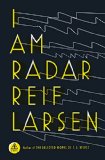
|
I Am Radar by Reif Larsen Feb 2015. 656 pages. Published by Penguin Press "All the world's a stage and all the men and women merely players." This certainly feels true in I Am Radar, Reif Larsen's compelling sophomore follow-up to his fantastic debut. A secret theater group in Norway; an electrical repairman, his wife and their son, Radar Ramanovic in New Jersey; a Frenchman and his adopted son in French Cambodia; and a family torn apart by war in Serbia - are all connected by a sweeping narrative that travels to hot spots around the globe. It's difficult to remember when I was this conflicted about a novel. I expected great things from I Am Radar and in many ways, the book delivers. It's 650 pages long and kept me absorbed right until the very end (except for one part, which is both metaphorically and literally at sea). This in itself is an impressive feat. It is obvious that Reif Larsen has prodigious volumes of talent and his novel dazzles often. Yet the central conceit about performance art as imagined by some key characters just didn't draw me in. I found it difficult to buy into this premise and unfortunately when the scaffolding itself is shaky (or at least if the reader is not readily invested in it) the rest can teeter easily. I Am Radar is frequently brilliant and has great writing but the story kept me at a remove. In the end, I still can't decide how I feel about the novel, it certainly is fascinating and gripping and I left impressed with Larsen's writing but wished it had been corralled into a plot that didn't have me question its plausibility as frequently as I did. More info |
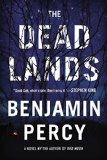
|
The Dead Lands by Benjamin Percy Apr 2015. 416 pages. Published by Grand Central Publishing Benjamin Percy's latest novel, The Dead Lands, billled as a post-apocalyptic reimagining of the Lewis and Clark saga, is set in a future United States. As the book opens, readers discover that St. Louis has been sealed off to protect a remnant of humanity behind its walls, and over the centuries the population has come to believe they're the only inhabitants left on a dying planet. A small group of radicals believes that this assumption is wrong, and the book's plot revolves around this cadre of people escaping from the city to discover what exactly is beyond the ruins. Percy's writing style is at times rather beautiful, with vivid descriptions of the failing city and the land beyond. That is, however, perhaps the only bright spot I found in the book. The characterization in particular was amateurish; the characters were not only one-dimensional but complete cartoons, in some cases being so evil or warped that they were laughable. The plot was reasonably imaginative, but really not exceptional and at times I found it unnecessarily gory and violent. There were lots of monstrous creatures (too many, in my opinion) as well as mutant humans with special abilities, but rather than making the book exciting, I thought these features simply made it silly. It reminded me a lot of Justin Cronin's The Passage (which I loved, by the way), but instead of being geared toward adults and creating a truly scary vision of the future, Percy's effort seems targeted to teenage boys. It might make a good movie for that audience, but I don't think it'll appeal as a written work to those who enjoy their horror with a dash of literary merit. Oh, and if you're wondering, the only things the plot has in common with the Lewis and Clark expedition is that the characters travel from St. Louis to Oregon, and they're named Lewis and Clark. 1 out of 5 stars. More info |
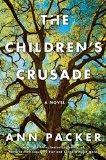
|
The Children's Crusade by Ann Packer Apr 2015. 448 pages. Published by Scribner Anne Packer's latest novel is about the Blair family - Penny, Bill and their four children. It is also about how Penny slowly distances herself from them and how that affects each and all of them. Much of the book centers on James, the youngest son, and his rebellious (or perhaps ADD) spontaneity that both charms and exasperates all of his family. This makes for a compelling basis for this novel, which Packer builds beautifully through her characters development, and with a writing style that is graceful and accessible. However, while I couldn't stop reading about these people, I also had the feeling that something wasn't all there. It seems to me that Packer didn't totally understand James, and so we never get to understand him either. Furthermore, just when we think we're about to get to the heart of it all, the story pulls back and goes onto something else. This means that we never really empathize with James or any of these people, and are left more puzzled than caring, making for an overall bland feeling to the book, despite the lovely prose. Because of this, I can't give it much more than three out of five stars. More info |
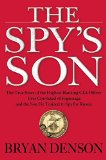
|
The Spy's Son: The True Story of the Highest-Ranking CIA Officer Ever Convicted of Espionage and the Son He Trained to Spy for Russia
by Bryan Denson May 2015. 368 pages. Published by Atlantic Monthly Press I have a literary interest in the CIA, but The Spy's Son didn't do it for me. The main theme is "Why?", as in why Jim Nicholson became a spy for Russia, and why his son Nathan joined him? How does someone who worked for the CIA for 20 years turn like that? The trouble with The Spy's Son is that it's too long a path to get to those answers, in that Denson, while being in fine form in his research, is too scattershot in his writing. Where one would want to read the protagonists' origins first, to get a sense of who they are, we get instead Nathan's latest mission for his father, ending with federal agents pounding on the door of his Oregon apartment. Spycraft is difficult enough to keep straight at the best of times and this was made more difficult with the book's structure. Even once the reasons for both men's counter-espionage choices were explained it just wasn't enough to keep my interest. I'm patient enough in my reading, but I've got to be given something every now and then to keep me going. There wasn't enough of that in this. More info |
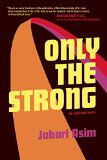
|
Only the Strong by Jabari Asim May 2015. 288 pages. Published by Agate Bolden As much as I loved the idea of reading about the era of my teenaged years (the 70s), sadly, Only The Strong never pulled me in and I gave up about half way through. In addition, it broke one of my cardinal rules for historical fiction. That is, if a story about the past is being told in the present tense, do not tell me something about one of the characters (real or fictional) that is going to happen to them in the future! If the story is being told in retrospect, that's fine. But if you're in the past, stay in the past. More info |
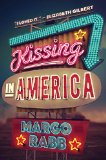
|
Kissing in America by Margo Rabb May 2015. 400 pages. Published by HarperCollins Publishers Margo Rabb's Kissing in America is an enjoyable romantic, journey novel. It's too bad that it is a little too light on the heart. I can see where other reviewers might enjoy it more. It has a good voice. It has good plotting. Ultimately, it's a fine book. My problem with it is that there is nothing really interesting about it. The protagonist, who does like her mother and then doesn't and then does, decides to travel across the country to be with a boy she barely knows. She meets a couple of other people who are basically ordinary people. It's not boring, but, at the same time, it is. More info |
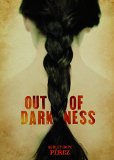 |
Out of Darkness by Ashley Hope Pérez Sep 2015. 408 pages. Published by Carolrhoda Books Set in 1937 Texas, the last sentence in this novel is a plea to remember the story and share it... presumably to raise awareness of the kind of foul behavior detailed in the book. This request is filling me with guilt. I know that you must face awful things in order to change them. But still, there is so much hate, physical abuse, mental abuse, sexual abuse, racism, death and grief in this novel, I just cannot see myself recommending it to friends, even to other adults. More info |
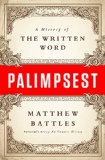
|
Palimpsest: A History of the Written Word
by Matthew Battles Jul 2015. 256 pages. Published by W.W. Norton & Company Palimpsest, which looks to dip into the history of writing, is based on an interesting premise but unfortunately ends up being too inaccessible for the most part. The book starts off promisingly but the writing is so stilted that it calls attention to itself more often rather than shining the spotlight on the actual material presented. Here's an example: 'This remarkable—and remarkably simple—capacity for writing to become a symbiont of the consciousness, for a craft so sophisticated and cognitively demanding to knit itself securely into our quotidian ways—is as responsible as its great utility for the ineluctable role it plays in modern life.' Here's another: 'With writing's advent, language ends its prelapsarian phase, trading oral language's mythopoeic effusion, innocent and promiscuous, for nominal precision and fixity.' An occasional overwrought sentence would be just fine, one would argue, even necessary, but page after page of such obtuse writing only mars the discussion instead of adding to it. The author often presents history in the present tense ('Writing begins in China at about the same time it first appears in Mesopotamia'), which only exacerbates already simmering annoyances. A less pedantic approach might have made for a more approachable and enjoyable read. More info |
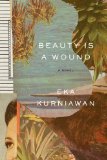
|
Beauty Is a Wound by Eka Kurniawan (Author), Annie Tucker (translator) Sep 2015. 384 pages. Published by New Directions I have to admit this book was a struggle. Perhaps the problem is cultural; I don't know enough about the recent history of Indonesia to put the story in context, and the style of writing is a challenge (more like a fable, crude, cartoon violence with little character development) I just couldn't get into it and sadly did not enjoy it. But for those familiar with Indonesian literature, I suspect this will soon take on the status of a classic, read and discussed for many years. More info |
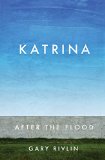
|
Katrina: After the Flood
by Gary Rivlin Aug 2015. 480 pages. Published by Simon & Schuster Gary Rivlin is a consummate reporter. On a major catastrophe like Katrina, he's one voice you know you can trust because his articles go straight down the line on what happened here, what the reaction of the people involved was, bang, bang, bang, very focused, very quick, very on deadline. In 400 pages it's tougher. There has to be some glimmer of humanity, and there is a bit in Katrina, but you have to really look for it. This is more a book for policy wonks who keep close tabs on the statistics of an event and want to know exactly what happened, and don't mind there not being a whole lot of humanity in the telling. To be sure, he gets to the core of the faults of those involved, such as how Ray Nagin, despite being seen as "America's Mayor" in a brief few moments in the spotlight after Katrina, was consumed more by ego than by setting his city right again. It could be a seminal work to some, a comprehensive explanation of what went wrong where in the aftermath, but it's more detail-driven than anything else. It gets tiring for that reason. Details are okay, if a little more can be offered alongside them, but one is hit over the head constantly with this name and that name and this date and that date. There's so much to cover and there's the feeling here that he wanted to cover it all, but much suffers as a result. More info |
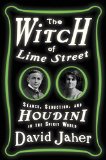
|
The Witch of Lime Street: Séance, Seduction, and Houdini in the Spirit World
by David Jaher Oct 2015. 448 pages. Published by Crown In the 1920s during the revival of Spiritualism, seances and mediums were a dime a dozen. But how to tell if any of them were the real thing? Scientific American decided to subject the best of the best to a test. Any medium that passed muster with a five-man panel would be deemed authentic and win an impressive cash prize. The Witch of Lime Street is essentially a look at this historic contest, the players and the results. Jaher, who has obviously researched this book exhaustively takes such a long time to set up the event that one loses interest halfway through. A series of quacks parade on and off the stage and by the time the titular witch is actually ready for the limelight (sorry), we've had more than our fill of dark parlors and tables walking off by themselves. The topic would have made for an impressive longform magazine article, and the book kicks off well, but more than 400 pages is just overkill. More info |
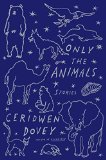
|
Only the Animals: Stories
by Ceridwen Dovey Sep 2015. 256 pages. Published by Farrar, Straus & Giroux All the stories are well put together, all quietly observant, and all the animals are at the mercy of humanity's most extreme endeavors, but every single animal has the exact same voice. The camel in the Australian outback sounds like the cat in the trenches of WWI, and the tortoise in outer space sounds like the cat, and the chimpanzee in Germany sounds like the parrot in Lebanon, and so on. More info |
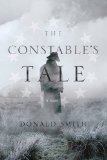
|
The Constable's Tale: A Novel of Colonial America
by Donald Smith Sep 2015. 352 pages. Published by Pegasus Books One hundred pages in and, sadly, I have to report that the writing is poor and the dialogue doesn't move the plot on. The relationship between characters isn't obvious, and friendships are formed without any rhyme or reason. The main character is hard to like; he alternates between being naive and a social climber. The author puts too much history into the book which slows down the flow. Also there are annoying inaccuracies such as the use of the word 'bucko.' which is used frequently. I looked up the etymology and apparently, it wasn't used until the 19th century, but this book is set in the mid-1700s. More info |
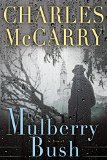
|
The Mulberry Bush by Charles McCarry Nov 3, 2015. 320 pages. Published by Mysterious Press Unfortunately The Mulberry Bush failed to move me. It started strong and I thought I would enjoy it, but from the middle all the way to the end (which is more exciting but not redeeming) it was all rather anodyne. More info |